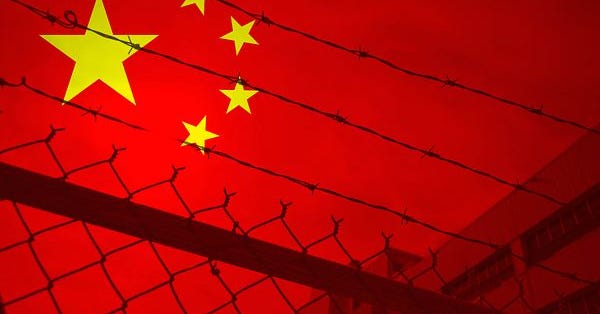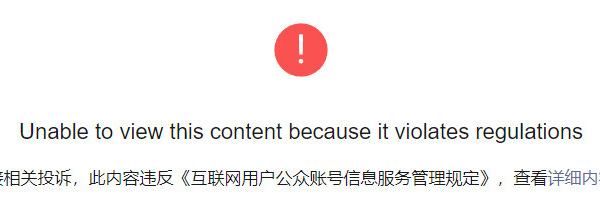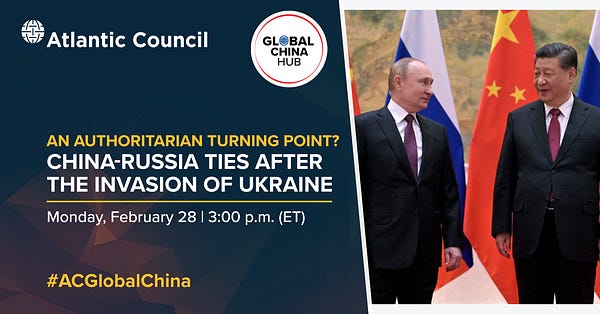Welcome to the 104th edition of Trade War. This week focuses on China’s response to the Russian invasion of Ukraine.
U.S. officials repeatedly tried to enlist Chinese support to stop Russia’s invasion of Ukraine but were rebuffed. Beijing struggles to come up with a consistent policy toward’s Moscow’s aggression while its foreign ministry lays out a five-point position on Ukraine.
China has surpassed Russia to be Ukraine’s largest trading partner. Billions of dollars in Ukraine-China trade are at risk. And Chinese academics speak out against the invasion.
US efforts to enlist China support rebuffed
The U.S. made repeated efforts to enlist China’s support in opposing Russia’s troop buildup around Ukraine in hopes of stopping the invasion but were rebuffed, reports the New York Times’ Edward Wong.
“Over three months, senior Biden administration officials held half a dozen urgent meetings with top Chinese officials in which the Americans presented intelligence showing Russia’s troop buildup around Ukraine and beseeched the Chinese to tell Russia not to invade,” reports Wong.
Chinese officials, including the foreign minister and ambassador to the United States, not only rejected the U.S. overtures but in one instance shared the information with Moscow, saying that Washington “was trying to sow discord — and that China would not try to impede Russian plans and actions,” according to the Times.
“The previously unreported talks between American and Chinese officials show how the Biden administration tried to use intelligence findings and diplomacy to persuade a superpower it views as a growing adversary to stop the invasion of Ukraine, and how that nation, led by President Xi Jinping, persistently sided with Russia even as the evidence of Moscow’s plans for a military offensive grew over the winter.”


Xi blindsided on invasion?
China is struggling to come up with a consistent position on the Russian invasion of Ukraine, reports the Wall Street Journal’s Lingling Wei.
“In recent days, Beijing’s response has been vacillating between more clearly opposing an invasion and providing moral support for Moscow’s security concerns, all the while continuing to blame the U.S. and its allies for hyping the threats from Russia,” reports the Journal. “Late Friday, China abstained from voting on a U.S.-drafted U.N. Security Council resolution aimed at ending the war in Ukraine.”
“China’s foreign-policy establishment dismissed a steady stream of warnings from the U.S. and its European allies about a pending Russian invasion, and instead blamed Washington for hyping the Russian threats,” writes Wei.
“Whoever gives policy recommendations in China wants to cater to what the top leader wants to hear,” Yun Sun, director of the China program at the Stimson Center, a Washington-based think tank told the business paper. “They feed information into that direction.”
“Beijing generally has [very] little insight into how Russia thinks. No exception this time. A failure to anticipate Putin’s actions went into Xi’s calculus in signing on to the 2/4 solidarity statement with him. Now China is flailing to adjust its position,” tweeted Wei.
Here is the Chinese foreign ministry’s account at the time, of the February 4 Xi-Putin meeting in Beijing.


What is the better spin for the PRC?
“What is a better spin for the PRC about the Russian invasion of Ukraine? Xi didn’t know, was surprised, so there was massive intelligence and analytical failure inside the PRC system? Or Xi knew in advance, kept it to a very close circle?” tweets Bill Bishop, author of the Sinocism newsletter.

An impossible balancing act
“They are in a difficult spot because they are attempting (both rhetorically and substantively) to balance three goals that, quite simply, *cannot* be reconciled,” writes Evan Feigenbaum, Vice President for Studies at the Carnegie Endowment for International Peace.
“(1) a strategic relationship with Russia; (2) commitment to longstanding foreign policy principles around “noninterference,” and (3) a desire to minimize collateral damage to Chinese interests from economic turmoil and potential secondary sanctions from the US and EU,” writes Feigenbaum.
“Bluntly, Beijing will not be able to have all three of these simultaneously, so it will have to jettison one or another of these goals and maybe shift from day to day.”

China’s 5 points on Ukraine
“China's Ministry of Foreign Affairs released a notice in the early hours of February 26 Beijing time stating that State Councillor and Foreign Minister Wang Yi spoke with representatives from the UK, EU and France on February 25 over the Ukraine issue,” writes China Neican’s Adam Ni.
During the calls, Wang Yi laid out China's position on Ukraine in five points. Prominent among them: “Russia's legitimate security appeals should rightfully be taken seriously and appropriately resolved.“
Here is the original in Chinese.
Biden official: China is not coming to Russia’s rescue
“China's not helping Russia soften the blow of sanctions, Biden official told reporters,” tweets Bloomberg News senior White House reporter Jennifer Jacobs.
"The latest signs suggest that China is not coming to the rescue," the official said. Evidence is that "much like has been the pattern for years and years, China has tended to respect the force of US sanctions."

Billions of dollars in Ukraine-China trade at risk
"Prolonged fighting with Russia puts at risk billions of dollars in economic ties between the target country, Ukraine, and its top trading partner,"reports VOA News Ralph Jennings.
Trade between the two countries exceeds $10 billion, with China selling machinery and consumer goods to Ukraine and Ukraine in turn providing corn, barley, sunflower oil, and nuclear reactor parts to China.
Meanwhile, a Chinese consortium agreed in 2017 to build a fourth line for a metro system in Ukraine’s capital, with Huawei installing its 4G network.
"If the war goes on, then construction on the metro in Kyiv is going to stop, opportunities for Huawei and putting in the telecoms will stop. Even getting grains and things like iron ore out of the Ukraine will become a problem. So that's just sort of on the physical challenge of trying to run an economy and do trade in a war situation," Dexter Roberts, U.S.-based author of "The Myth of Chinese Capitalism,” told Jennings.


China edges out Russia as Ukraine’s largest partner
China beats out number two country Russia, as Ukraine’s largest trading partner. Germany, Poland, Turkey, Belarus, Italy, the U.S., India and the Netherlands, respectively, round out the top ten.
Notable/In Depth
While it often seems that China speaks with one authoritarian voice, “this impression is essentially fabricated–a result of the regime’s efforts to silence the many voices … that conflict with its narrative," writes Freedom House’s Sarah Cook in The Diplomat.


"We strongly opposed Russia’s war against Ukraine. Russia’s invasion of a sovereign state by force, no matter how many reasons or excuses Russia may have for its actions, is a violation of the norms of international relations based on the United Nations Charter and a breach of the existing international security system,” write professors from Peking, Tsinghua, Nanjing, Fudan, and the University of Hong Kong.
“The four university professors who are circulating the petition can expect to be called in for a discussion of their thinking. I’ll always remember the Sichuan Academy of Social Science professor who told me at lunch on day in Chengdu “My real job is to monitor the thinking of the other professors!” writes former U.S. diplomat David Cowhig.


“The cost of raising a child in China stands at nearly seven times its per capita GDP, far more than in the United States and Japan, highlighting the challenges facing Chinese policymakers as they try to tackle rapidly declining birth rates,“ reports Reuters’ David Stanway.
China has moved closer to unifying its fragmented pension system, with money from richer areas now able to support poorer ones, reports Bloomberg News.
“The rust-belt provinces in the country’s northeast and the remote, poor regions in the northwest such as Gansu and Qinghai were among the places with the biggest pension payout pressures,” reports the financial news service citing a 2018 study.


What does Russia’s full-scale invasion of Ukraine mean for the future of China - Russia ties? Tune in Monday for a discussion hosted by the Atlantic Council’s Global China Hub.


Montana sunset
Just another Montana winter sunset.









Nice sunset!